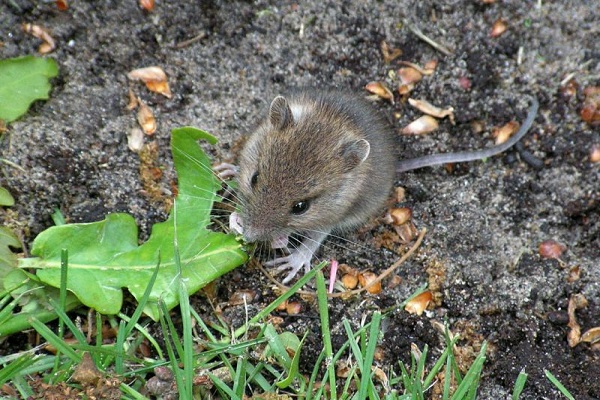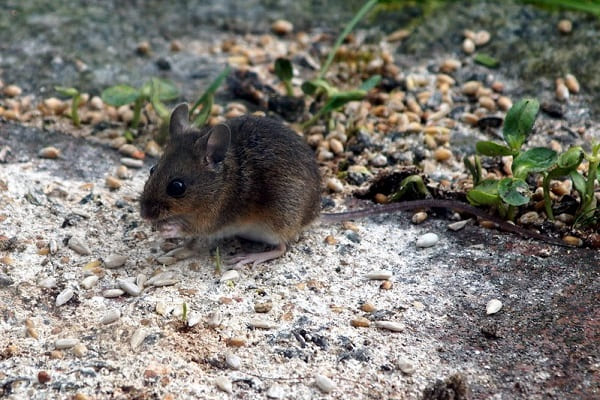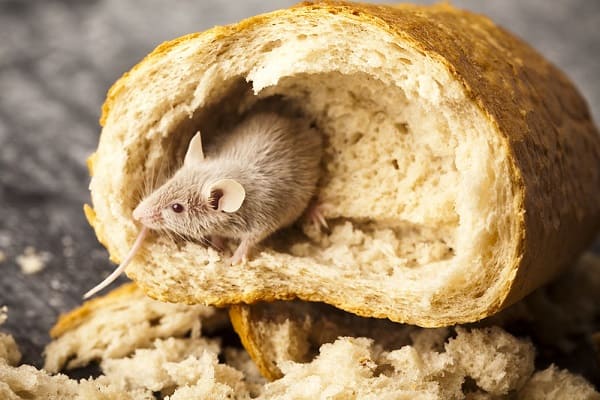
When it comes to studying rodents, researchers often consider the differences between male and female rats. These differences can impact various aspects of research, including behavioral response, physiology, and disease susceptibility. As a result, understanding the characteristics of both male and female rats is essential for scientists working with rodents. In this article, we will try understanding rodents, explore their fascinating world of rodents and delve into the unique features of male and female rats.

Types Of Rodents And Their Characteristics
Rodents are a diverse group of small mammals that belong to the order of Rodentia. Some of the most common rodents include mice and rats, which are found all over the world. Mice are typically smaller than rats, with a pointed snout and large ears. They are often kept as pets and are known for their playful behavior. Rats, on the other hand, are larger and have a more robust body structure, with a blunt snout and smaller ears. They are commonly used in scientific research due to their biological similarities to humans.
The roof rat, also known as the black rat, is a common type of rat found in many parts of the world. They are excellent climbers and can scale walls and trees with ease. Roof rats are typically black or brown and have a pointed snout, large ears, and a long, thin tail. They are known for their agility and intelligence and can be challenging to trap or control.
House mice are another common type of rodent that are found all over the world. They are small and typically brown or gray in color, with a pointed snout and large ears. House mice are known for their ability to breed quickly, with females producing up to 10 litters of offspring per year. Deer mice, on the other hand, are a type of rodent found in North America. They are typically brown or gray in color, with a white underbelly and large eyes. Deer mice are known for their agility and are excellent jumpers and climbers. They can carry diseases, such as Hantavirus, that can be harmful to humans.

The Role Of Rodents In The Ecosystem
Rodents play an important role in the ecosystem as they are an integral part of many food chains. They serve as prey for larger animals, such as owls, snakes, and foxes, and help to control plant growth by eating seeds and fruits. Additionally, rodents like mice and rats have been used as rodent models in scientific research to understand human diseases and to develop drugs.
Animal models are essential in drug development and biomedical research. Rodents like mice and rats are used extensively in preclinical testing because they share many genetic and physiological similarities with humans. This makes them ideal models for studying various diseases and disorders, including cancer, diabetes, and cardiovascular disease. Researchers can use rodent models to study the effects of drugs on the body, as well as to test new treatments and therapies.
Laboratory mice are also essential in understanding the behavioral and physiological changes that occur in response to environmental factors or genetic mutations. For example, mice and rats can be used to study the effects of stress response and behavioral responses of the brain, as well as to investigate the mechanisms underlying addiction and drug abuse. Overall, rodents play an important role in scientific research and drug development, as well as in the broader ecosystem.

Common Misconceptions About Rodents
While rodents can be cute, adorable, friendly, and curious, they can also be sneaky, destructive, and pesky. Some people might have a perception of rodents as dirty or disease-ridden, but this is not always accurate. One of the most common misconceptions is that house mice and rats are carriers of diseases. While it is true that rodents can carry diseases, the risk of transmission to humans is relatively low. In fact, most cases of disease transmission occur through contact with contaminated food or water, rather than direct contact with the animals themselves.
Another common misconception is that rodents are dirty and unhygienic. While it is true that rodents are attracted to food waste and can create unsanitary conditions, they are not inherently unclean animals. With proper sanitation and pest control measures, rodents can be kept out of homes and businesses. Another misconception is that rodents have poor eyesight and rely solely on their whiskers for navigation. In reality, rodents have excellent eyesight and use their whiskers for tactile sensation and to help them navigate in the dark.
Finally, there is a common misconception that rodents are not intelligent. In reality, rodents like mice and rats have been shown to be quite intelligent and can even learn complex tasks. For example, studies have shown that mice are capable of forming associations between different objects and locations, and can remember these associations over time. Furthermore, research has revealed that certain brain regions in rodents are involved in higher cognitive processes, such as decision-making and memory formation.

How To Safely And Effectively Control Rodent Populations
Controlling rodent populations is important to prevent damage to property and to reduce the risk of disease transmission. There are several safe and effective methods for controlling rats and mice populations. One of the most common methods is the use of traps. Snap traps and glue traps are both effective in catching rodents. However, it is important to check the traps regularly and dispose of any caught rodents promptly.
Another effective method of controlling rats is through the use of bait stations. These stations contain a bait that is attractive to rats, and when they eat the bait, it will kill them. It is important to place bait stations in areas where rats are known to be active and to ensure that they are inaccessible to pets and children.
If rats are present in a home or building, it is important to take steps to prevent exposure to them. This may involve sealing up any holes or cracks in walls or foundations, keeping food stored in sealed containers, and maintaining good sanitation practices. In addition, it is important to avoid handling rats directly, as they may carry diseases that can be harmful to humans. If an adult rat is caught, it is important to wear gloves when handling it and to dispose of it safely. Overall, effective rodent control involves a combination of preventative measures, such as sealing up entry points and keeping food stored properly, as well as the use of traps and bait stations to reduce the rodent population.
Impact Of Rodent Control Methods On The Environment
Rodent control methods can have an impact on the environment, particularly if they are not used in a responsible and sustainable manner. For example, the use of rodenticides can have negative effects on non-target species, such as birds of prey and other wildlife. Rodenticides can also contaminate soil and water, which can have far-reaching effects on ecosystems.
In addition, some rodent control methods can have unintended consequences for human health and well-being. For example, snap traps and glue traps can cause negative emotions for individuals who witness the death or suffering of rats. This can lead to anxiety, depression, and other mental health disorders. Similarly, the use of poison baits can result in the accidental poisoning of pets and other non-target animals.
Therefore, it is important to use rodent control methods that are both effective and sustainable. This may involve using non-toxic and humane methods, such as live traps and exclusion methods, to control rat populations. Additionally, it is important to properly dispose of any dead rats or rodenticides to prevent contamination of the environment. Overall, responsible and sustainable rodent control methods can help to reduce the impact of rat populations on human health and the environment.
Need Help With Wildlife On Your Property?
If you’re struggling with wildlife on your property, AAAC Wildlife Removal Services is here to help. Our team of trained professionals can safely and humanely remove a wide range of animals, including rats, from your property. We use the latest techniques and equipment to control rat and other wildlife populations while ensuring that the animals are treated with respect and care.
At AAAC Wildlife Removal Services, we understand that every situation is unique. That’s why we take the time to assess each property and develop a customized plan for controlling rat and other animal populations. Our experts are highly knowledgeable about rodent behavior and can identify the most effective strategies for keeping rats and other pests off your property. Whether you need assistance with rat removal, exclusion, or prevention, we have the expertise and experience to get the job done right. Contact us today to learn more about our wildlife control services and how we can help you regain control of your property.
Final Thoughts
This article has covered a lot of interesting topics related to our little furry friends, rodents! From their unique characteristics to their important role in ecosystems, we’ve explored some common misconceptions and the best methods for controlling their populations.
While rodents can sometimes cause trouble for humans, it’s important to remember that they’re an important part of many ecosystems. When it comes to rodent control, it’s all about finding the right balance between preventative measures and effective methods like traps and bait stations. Of course, we always want to keep the environment in mind and use sustainable methods that won’t harm non-target species.
At the end of the day, rodents like male rats and mice rats are complex creatures with their own unique behaviors and responses. That’s why it’s so important to understand their biology and behavior when it comes to effective control. We hope you’ve learned a lot from this article, and if you need any help with rodent control, don’t hesitate to reach out to AAAC Wildlife Removal Services!







